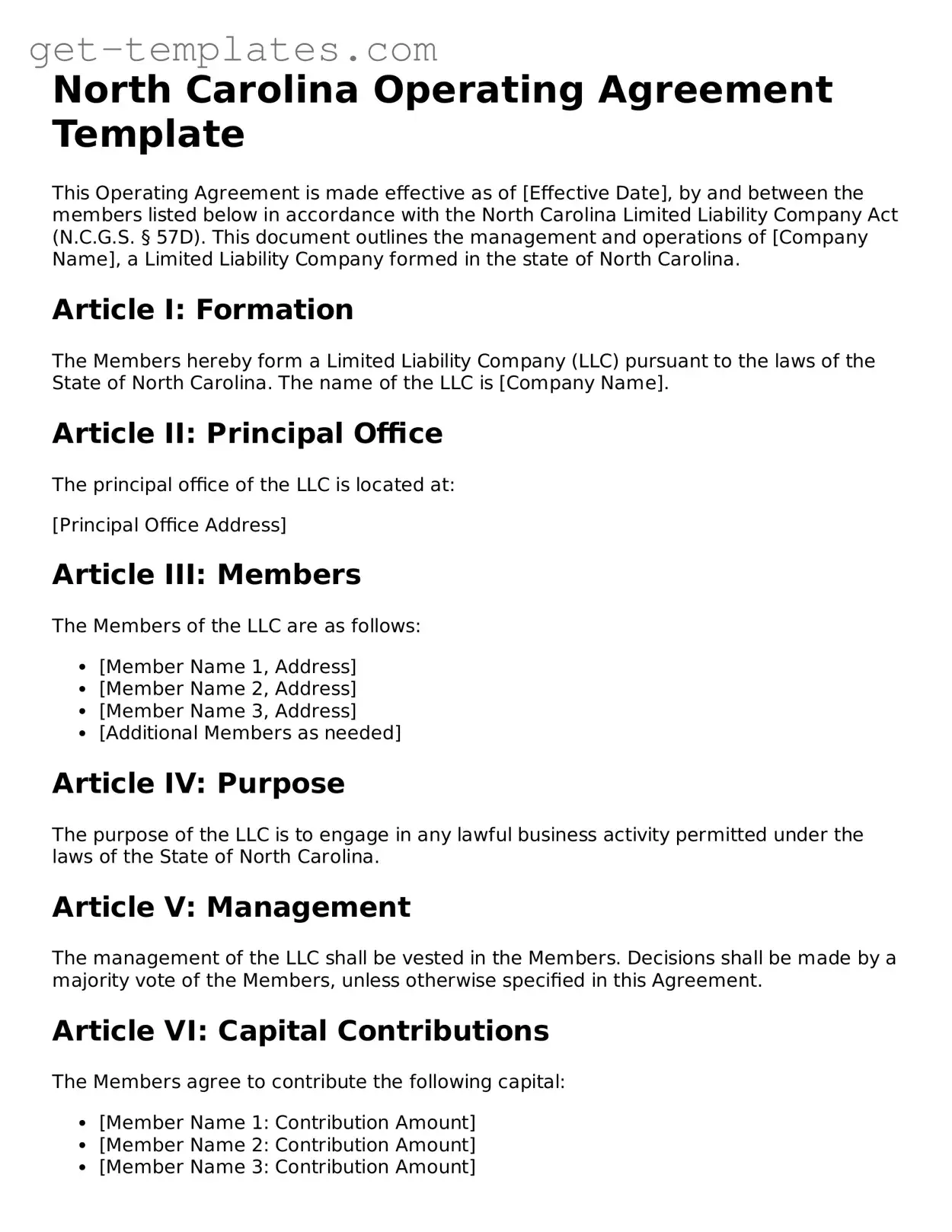North Carolina Operating Agreement Template
This Operating Agreement is made effective as of [Effective Date], by and between the members listed below in accordance with the North Carolina Limited Liability Company Act (N.C.G.S. § 57D). This document outlines the management and operations of [Company Name], a Limited Liability Company formed in the state of North Carolina.
Article I: Formation
The Members hereby form a Limited Liability Company (LLC) pursuant to the laws of the State of North Carolina. The name of the LLC is [Company Name].
Article II: Principal Office
The principal office of the LLC is located at:
[Principal Office Address]
Article III: Members
The Members of the LLC are as follows:
- [Member Name 1, Address]
- [Member Name 2, Address]
- [Member Name 3, Address]
- [Additional Members as needed]
Article IV: Purpose
The purpose of the LLC is to engage in any lawful business activity permitted under the laws of the State of North Carolina.
Article V: Management
The management of the LLC shall be vested in the Members. Decisions shall be made by a majority vote of the Members, unless otherwise specified in this Agreement.
Article VI: Capital Contributions
The Members agree to contribute the following capital:
- [Member Name 1: Contribution Amount]
- [Member Name 2: Contribution Amount]
- [Member Name 3: Contribution Amount]
Article VII: Profits and Losses
Profits and losses of the LLC shall be allocated to the Members in accordance with their respective percentage interests, which shall be based on their capital contributions.
Article VIII: Distributions
Distributions shall be made to the Members at such times and in such amounts as determined by the Members.
Article IX: Indemnification
The LLC shall indemnify and hold harmless each Member from any claims, losses, or liabilities incurred in connection with the business of the LLC, except in cases of gross negligence or willful misconduct.
Article X: Amendment
This Agreement may be amended only by written consent of all Members.
Article XI: Governing Law
This Operating Agreement shall be governed by, and construed in accordance with, the laws of the State of North Carolina.
IN WITNESS WHEREOF, the Members have executed this Operating Agreement as of the date first above written.
- _______________________________________
- [Member Name 1, Signature, Date]
- _______________________________________
- [Member Name 2, Signature, Date]
- _______________________________________
- [Member Name 3, Signature, Date]
- _______________________________________
- [Additional Members as needed]

